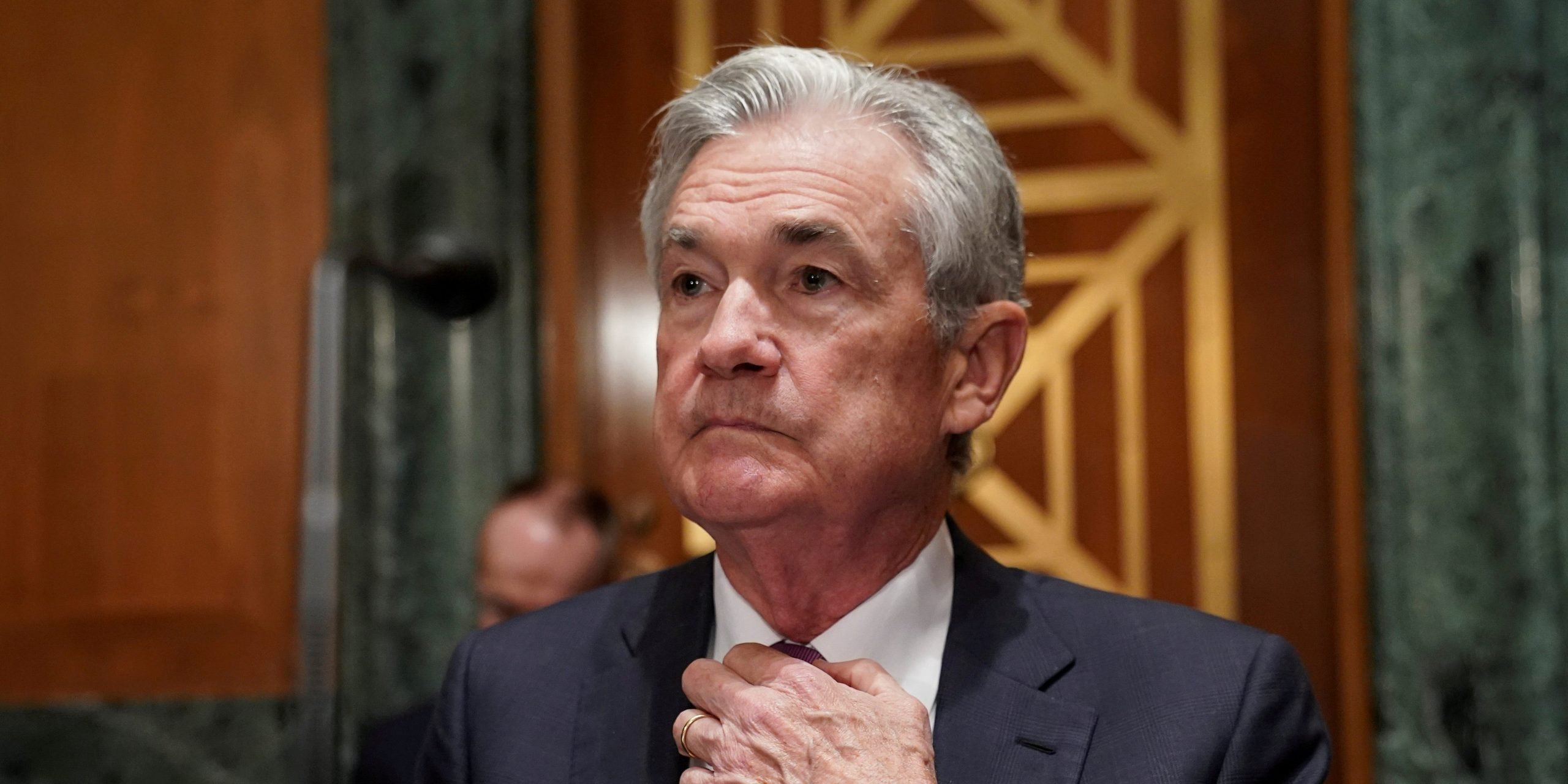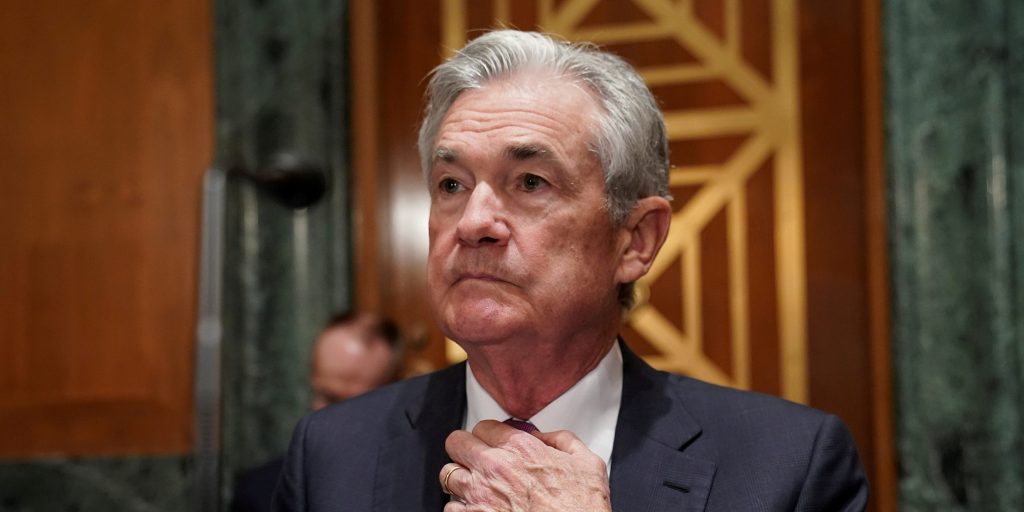
- The Omicron variant brings new risks to the economic recovery, Fed Chair Jerome Powell said Tuesday.
- Little is known about the strain, but it's already fueled market selloffs and travel restrictions.
- Even if it's less dangerous than Delta, fear could slow progress toward a full recovery, Powell said.
The economic recovery only just shifted into a higher gear. The Omicron strain now threatens to slow it all down again, Federal Reserve Chair Jerome Powell warned Tuesday.
The US is on the mend. Hiring rebounded in October and is expected to have improved further in November. Consumer spending rose to record highs last month. Recent economic data led Wall Street economists to boost their forecasts for fourth-quarter growth. However, news of the new Omicron variant has quickly soured optimism.
The strain has been detected in several countries over the last few days as scientists scramble to understand its infectiousness. Several nations have already instituted travel bans and restrictions that are likely to hamper economic activity. The situation presents a new threat to the US's recovery and makes it even harder to forecast the path to pre-pandemic health, Powell told the Senate Banking Committee in a Tuesday hearing.
"The recent rise in COVID-19 cases and the emergence of the Omicron variant pose downside risks to employment and economic activity and increased uncertainty for inflation," Powell said.
The warning strikes a slightly grimmer tone compared to the White House's messaging. President Joe Biden said Monday that he doesn't expect the US to impose more travel restrictions after barring visitors from several African countries. The variant "is a cause for concern, not a cause for panic," he added.
The private sector has been more vocal in its worry about Omicron. Moderna co-founder Moubar Afeyan told Bloomberg News on Tuesday that the variant needs to be taken "for the serious threat that it poses." Stephane Bancel, Moderna's CEO, told the Financial Times "there is no world" where vaccines will be as effective against Omicron as they were against the Delta variant.
"I think it's going to be a material drop [in effectiveness]," he told the FT. "All the scientists I've talked to ... are like, 'This is not going to be good'."
To be sure, little is known about the new strain. Omicron seems to have many mutations compared to prior variants, but vaccine effectiveness and the seriousness of the strain's symptoms are unclear.
The immediate uncertainty could slow the recovery in its tracks, Powell said. Just as the Delta wave revived fears of catching the coronavirus, the Omicron variant could force Americans back into self-imposed lockdowns.
"Greater concerns about the virus could reduce people's willingness to work in person, which would slow progress in the labor market and intensify supply-chain disruptions," Powell said.

